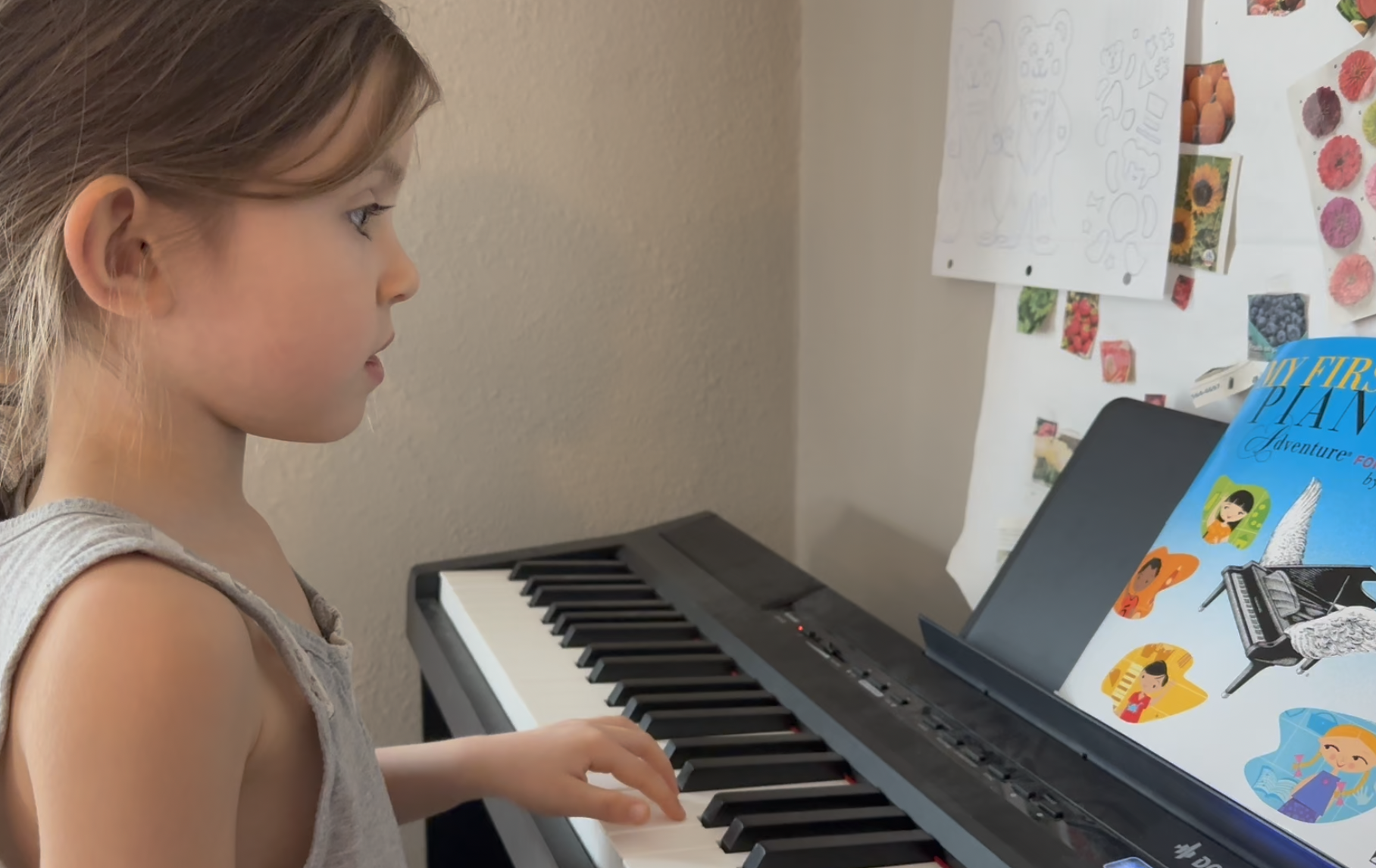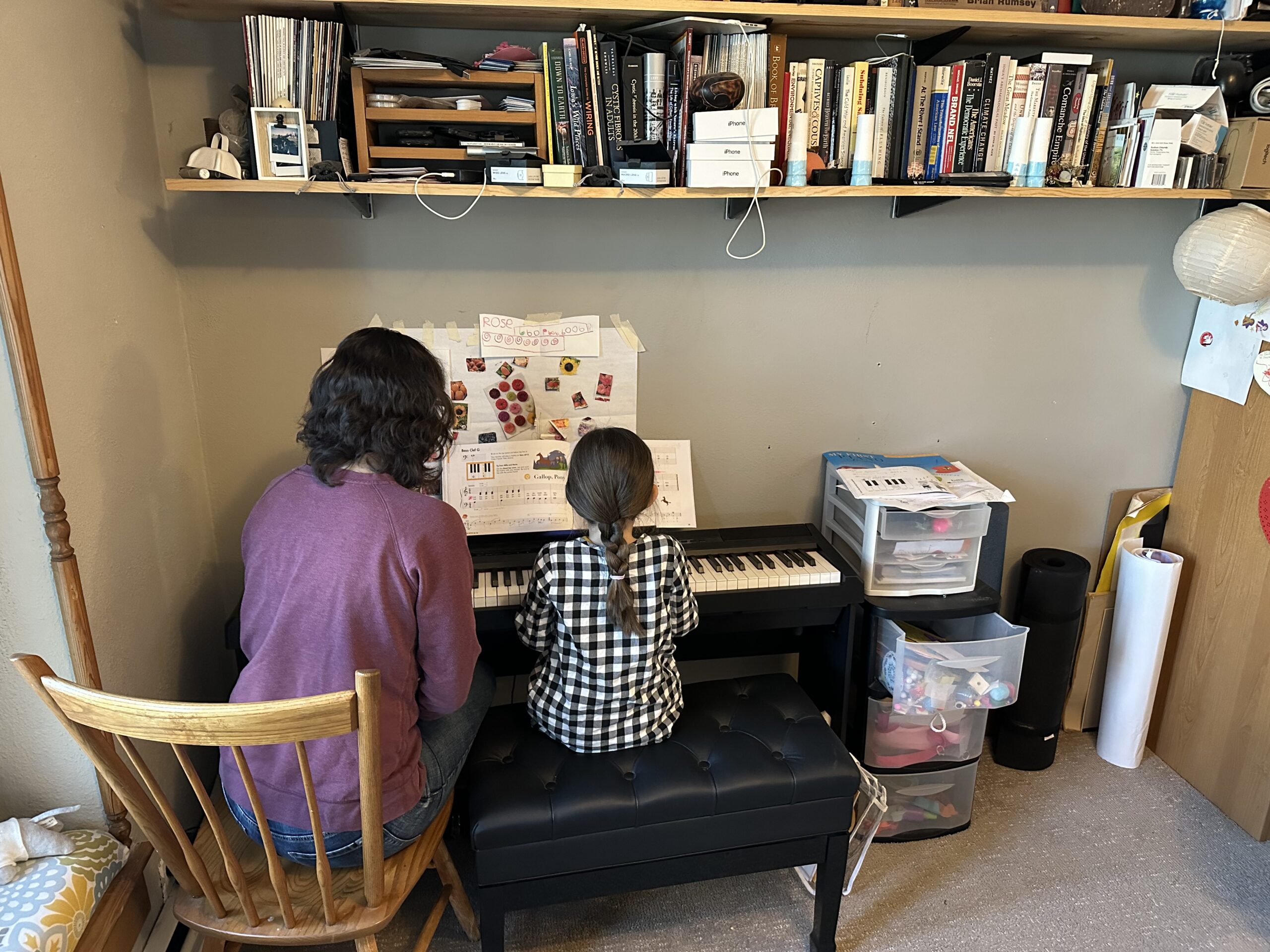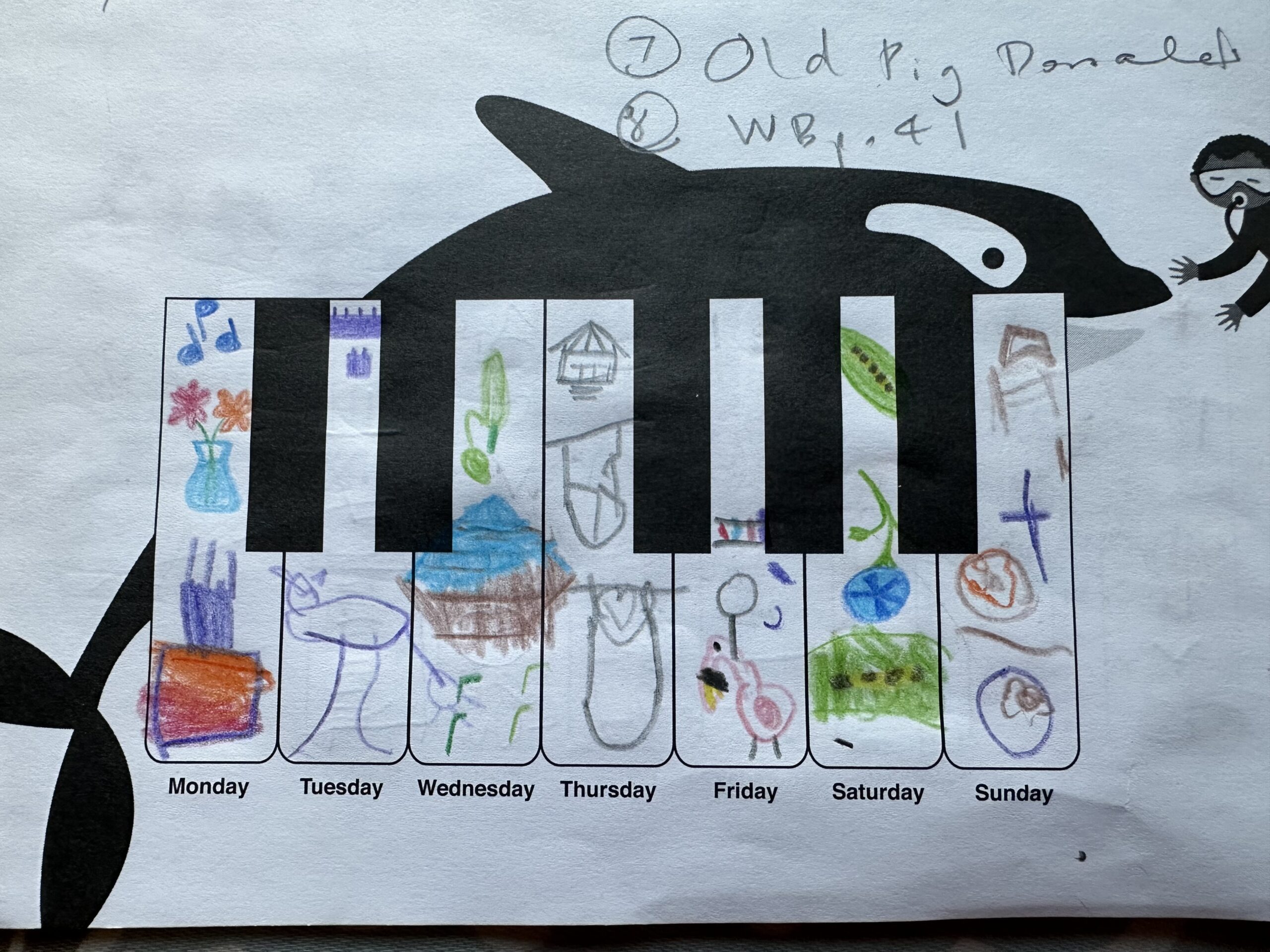By guest blogger and piano parent, Chepina Rumsey
As an educator and mother, I have seen that young children live in a place of curiosity, wonder, and joy and one way to connect with them in a deep way is to join them where they are. But what does it look like to “join them” and to experience joy and wonder through their eyes as they guide us? As adults it can be hard to slow down and join our children with wonder when we have many important things going on in a day. It’s also hard to remember what it is like to be exploring the world without all of the knowledge we have acquired through our lives. I want to share an idea with you that we call Piano Play, a time of our day where I do intentionally slow down and join our five-year-old (Jackie) at the piano to playfully explore and be together.
My expectation is that at this age, Jackie needs connection and support to practice piano consistently. It’s easier to be consistent when something is fun and done together with someone you love. So, during Piano Play we sit next to each other, laugh, play games, sing along, get silly, and practice the songs and activities Miss Kelly has suggested. Miss Kelly uses a curriculum that is child-centered, so it’s not hard to make it fun – it already integrates a lot of important features. Not only is it a time for us to be together, it’s an amazing opportunity to step back and curiously observe as a parent that this is our child and her brain is doing amazing things before my eyes. I want her to remember years from now that while she was learning, struggling, and succeeding, I was there alongside her. And struggling is a part of it sometimes. It’s not always perfect and I’m not always able to patiently slow down and disconnect from work, but we do take the time every day to be together and accept what we bring to the Piano Play. Piano Play is a chance to practice grace with each other too, and it’s often the case that it’s just the time we both needed.
As I was reflecting on Piano Play, I came up with the following ideas and tips that might work for your family. Not that you have to replicate it exactly, but maybe one or two of these ideas can be included in the way your unique family structures your own Piano Play.
Limit Distractions
Try to find a time when others in the house are not distracting. We do Piano Play when our three-year-old begins her nap so that Jackie is the focus of the time. Piano Play happens after lunch so that she is not hungry or tired. It would be hard to do it later in the day when she is tired and it would also be hard to do it in the beginning of the day when she has higher energy.
Boundaries and Expectations
Setting loving boundaries about expectations is helpful and she is surprisingly not resentful when I remind her about posture, finger position, or the importance of taking turns. We put other toys or books aside to focus on Piano Play. Piano Play isn’t idyllic every day, she does need reminders sometimes. There are times when it does end in frustration. I gently tell her that I want to help her be her best and that we all need reminders at different times. Over time the routine has been established so the early work to establish expectations definitely paid off.
Guide Each Other
Jackie and I guide each other through the Piano Play in different ways. I am attentive to Jackie’s interests and also attentive to the goals Miss Kelly has set for us for the week. We do focus on the tasks that Miss Kelly has given us for the week, but also make time to playfully explore other ideas that come up (click link to see one of Jackie’s fun ideas!). For example, if Jackie has an idea she wants to try, I say something like
- “I love that idea! Let’s try it once we do this song.”
- “Let’s try your idea and then play this song from Miss Kelly’s list.”
Follow Cues
Following her cues is important. If she is more tired one day we may not play as long. Or, if she is really excited about a song, we may explore it longer. If she is frustrated and things are not going as well we may take a break from that song and play a made up piano game. Jackie loves to play a game where she presses the damper pedal and a note and I guess when she is pressing it. It’s so simple but she has been requesting it for seven months. She likes when I say, “you’re pressing it” in a silly voice. She can’t get enough.
Mistakes
We accept mistakes and talk about them. Piano play is never about being perfect, although I do acknowledge when she plays a piece “exactly how it is written” or encourage her to try certain measures again to help her brain process it. I also play some of the pieces as she watches and I talk through as I make mistakes to model. Our brains are powerful tools and it is amazing to watch her grow each week.
Praise
I find that it’s easy to “over praise” because I am so excited about her learning and progress. Rather than always being the one to praise or “judge” the piece, I try to vary my responses by
- asking how she felt about her playing
- asking what she liked about the song
- smiling and watching her body language
- smiling and giving her space to talk about the song or move on
- giving her a hug
- being excited and asking to try to play song
Ending with a Picture
Every day, after Piano Play, we both draw a small picture for each other in our Little Yellow Practice Book. It doesn’t have to be piano related, just something to remind us about our day. It is so rewarding to look back and see all of the pictures. There are days when we don’t get to do Piano Play and we give ourselves grace and write in the reason. Usually it’s for travel – even when Jackie is sick she’s been motivated to play at least a little bit. Jackie looks back at the practice book regularly to remember days when special things happened because it’s a treasured book that shows our life, not just our Piano Play.



